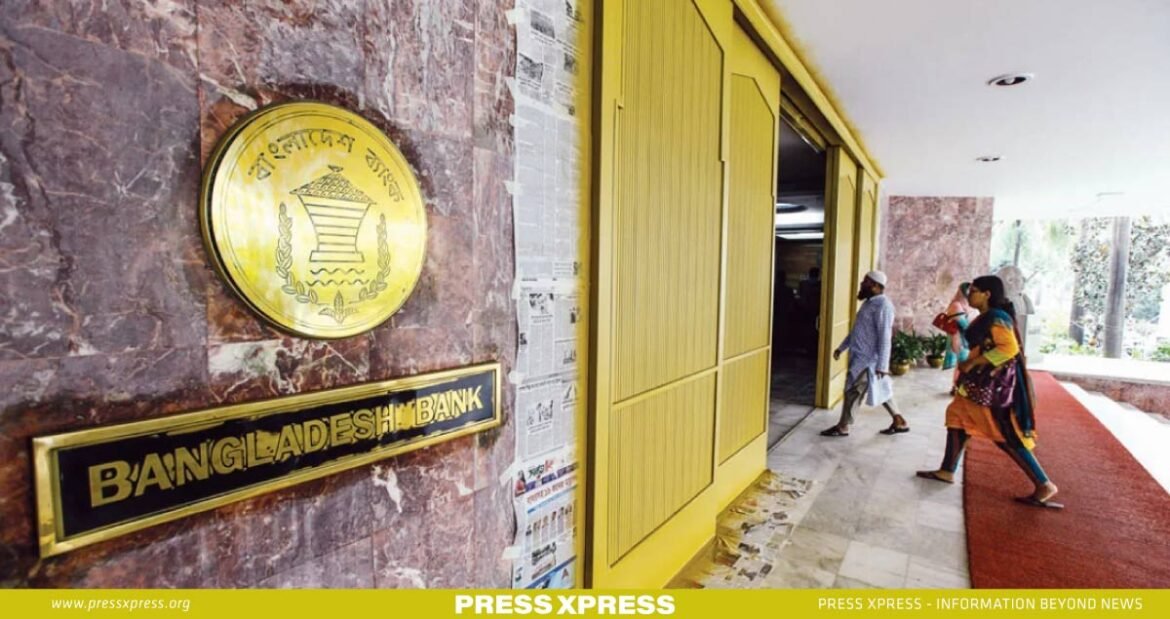“Rest assured, our loan interest rates have been meticulously adjusted in accordance with the SMART rate. I want to emphasize that there are no intentions for any unwarranted or excessive interest rate hikes.” – Abdur Rauf Talukder, Governor, Bangladesh Bank
In an effort to combat rising inflation, Bangladesh’s central bank has implemented measures to make money more expensive. The benchmark lending rate, known as SMART (Six-Month Moving Average Rate of Treasury Bills), reached a six-month high of 7.20% in September. This increase comes as the central bank halted money creation to finance government deficits, aiming to control the money supply.
The rise in the SMART rate signifies that money will become more expensive, as it is closely tied to the bank’s lending rate. Under the new lending rate formula introduced by Bangladesh Bank (BB) in the latest monetary policy announced in June, the bank will lend at SMART plus a margin, up to 3% for some cases, and up to 5% for non-bank financial institutions.
You can also read: Bangladesh Bank’s new policy of Dollar Retention Quotas for Exporters
The SMART rate stood at 7.10% in June but gradually increased to 7.14% in August and 7.20% in September. This increase was attributed to the central bank’s decision to stop creating money for two months, a move that drew criticism from economists who had previously raised concerns about money printing to finance the government’s deficit.

BB’s Initiatives
As part of its efforts to control inflation, Bangladesh Bank had previously raised the policy rate to 6.5% from 6% when announcing its current monetary policy in June. The central bank had created 80,000 crore taka of new money in the last fiscal year to maintain low Treasury rates and a stable borrowing rate that accounted for inflation.
To further address inflation, Bangladesh Bank has taken various initiatives, including restructuring the Monetary Policy Committee and increasing the cost of funds. The reconstituted committee will resemble the Indian model with external members, aiming for greater transparency and diverse perspectives.
Experts, including the IMF, have discussed the potential for further policy rate hikes to combat inflation. Such actions would impact Treasury rates and the lending rate, as they are interconnected.
In the current fiscal year, Bangladesh Bank had already created 9,000 crore taka of new money in July alone. However, in August, the central bank began collecting money from banks by selling Treasury bills to finance government deficits. Banks responded with higher rates for treasury bills in auctions, leading to an increase in SMART rates.
Expert Opinion
Sadiq Ahmed, former World Bank director and vice chairman of the Policy Research Institute of Bangladesh (PRI), emphasized the importance of ceasing financing the budget deficit through money creation as a key policy measure to control inflation. He noted that the Ukraine war, often blamed for inflation, had only an immediate effect, while the current high inflation primarily stems from money creation and interest rate controls.
To address the situation effectively, Ahmed recommended focusing on inflation targeting and reducing domestic debt until inflation reaches the desired level of 5%-6%.
Rising inflation is also placing pressure on foreign exchange reserves in Bangladesh. The gap between the real effective exchange rate (REER) and the bilateral exchange rate has widened, indicating devaluation pressure on the local currency. The discrepancy between official and unofficial exchange rates is leading to the depletion of reserves, with the market rate surpassing the officially announced dollar rate. The REER-based exchange rate highlights the rupee’s overvaluation relative to other trading partners.
Despite Significant Depreciation, Inflation Woes Persist
A senior executive from Bangladesh’s central bank revealed that despite a substantial depreciation of over 16% in the rupee’s value through September 2022, the currency remains overvalued. This overvaluation continues as inflation in Bangladesh accelerates, in contrast to cooling inflation trends in other comparable countries.
The taka experienced a marginal depreciation of 0.36% in July, primarily due to a significant devaluation. However, after inflation surged to 9.92% in August, the taka once again appeared overvalued in the Real Effective Exchange Rate (REER) index.
One contributing factor to the rapid depletion of reserves is the Bangladesh Bank’s reluctance to adjust the exchange rate in line with market demand, driven by concerns about further inflation. Over the course of three months from July to September in the current fiscal year, Bangladesh Bank sold approximately $3 billion from its reserves. Consequently, reserves declined from $31.2 billion in June to $21.15 billion by September 26.
In a challenging environment where inflation has reached 9.92%, the central bank faces difficulties in implementing a flexible exchange rate. A senior central bank executive recommended caution against massive devaluation, suggesting that incremental price increases do not contribute significantly to preserving reserves.
BB Prioritize the control of rising inflation
Governor Abdur Rauf Talukder assumed office at Bangladesh Bank in July 2022, pledging to prioritize the control of rising inflation. However, since his tenure began, inflation has continued to rise, reaching 9.92% in August from 7.48% in July the previous year. Food inflation also reached a 12-year high of 12.54% in August, impacting the middle class and impoverished communities.
Global rating agencies, including Moody’s and Fitch, downgraded Bangladesh’s rating, citing external vulnerability and liquidity risk exacerbated by deteriorating foreign exchange reserves. Governor Talukder, during a monetary policy announcement, dismissed Moody’s downgrade as geopolitical rather than economic.
Despite the primary goal of inflation control, Bangladesh Bank has faced challenges due to limited use of monetary tools and an easy money supply driven by interest rate caps influenced by political considerations.
Additionally, Bangladesh Bank’s prolonged maintenance of an artificially stable exchange rate contributed to inflation, especially as the US Federal Reserve Bank’s rate hikes led to significant depreciation of the dollar.
In response to calls for increased interest rates to control inflation, Governor Talukder assured business leaders that loan interest rates had been adjusted according to the SMART rate, and there were no plans for an excessive interest rate hike.


